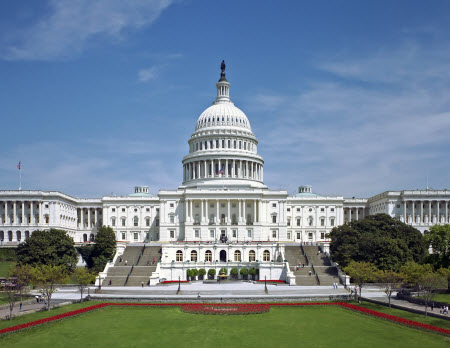CTA: Sec. 230 Reform is 'Constitutional Grenade'
Warns FCC not to try and negotiate Trump social media regulation minefield

The smarter way to stay on top of the streaming and OTT industry. Sign up below.
You are now subscribed
Your newsletter sign-up was successful
Using terms like "disastrous," "dangerous" and "unworkable," the Consumer Technology Association told the FCC Sept. 2 to reject the Trump Administration petition to regulate social media via reformation of Sec. 230.
That is the law that provides internet platforms with immunity from civil liability for most of the third-party content they moderate on their platforms.
Along with many others, CTA was commenting at the FCC on the National Telecommunications & Information Association (NTIA) petition, mandated by executive order, asking the FCC to open a rulemaking to "clarify" provisions of the section so that web sites would be accountable for how they moderate political speech.The FCC for the first time would have a defined role in regulating edge providers.
CTA said to try and reform it along the lines outline by the petition would lead the FCC into a "dangerous constitutional thicket" and there "jump on [the] constitutional grenade" of "interpreting the language of a statute in a way that contradicts dozens of court decisions across the country."
"NTIA, acting at the direction of the President, asks the Commission to usurp the role of Congress and rewrite Section 230 to significantly limit or essentially eliminate the legal protections provided by the statute and to impose new, competitively harmful disclosure requirements," CTA said.
CTA called Sec. 230 protections are a bedrock of the net and represent a "unique balance" that has allowed the U.S> to be a global leader in innovation.
Thanks to Sec. 230, and with a few exceptions, "internet companies are not subject to countless lawsuits and legal liability for allegedly unlawful statements made by their users or other third parties, or for the companies’ attempts to remove objectionable content from their platforms," it said, and that is the way it should stay.
The smarter way to stay on top of the streaming and OTT industry. Sign up below.
Contributing editor John Eggerton has been an editor and/or writer on media regulation, legislation and policy for over four decades, including covering the FCC, FTC, Congress, the major media trade associations, and the federal courts. In addition to Multichannel News and Broadcasting + Cable, his work has appeared in Radio World, TV Technology, TV Fax, This Week in Consumer Electronics, Variety and the Encyclopedia Britannica.

